Inveterate Volunteer’s Service Program “Soul Souvenirs” Documented in Memoir
Eight-time Global Volunteer Judith Love Schwab (pictured in 2012 in Cuba, fourth from left) says her first trip away from her Pennsylvania hometown at age 7 taught her that education isn’t limited to books. Experiencing life from different perspectives – as well as subjects otherwise avoided in daily life – became a magnet for her imagination. A retired teacher, a former reporter for the Roanoke Times in Virginia, contributor to the Christian Science Monitor and author of “Lending a Hand, Seeing the World,” Schwab discovered Global Volunteers in 2000. We excerpt some of her adventures here as a “servant-learner” in Poland, Mexico, Hungary, Greece, Romania, Brazil and Cuba.
There were a lot of “what ifs,” Judith writes, when she decided to travel alone for the first time. But, ultimately, whatever the risk, “there is no good, there is no bad, there just is,” she says quoting the Tao Te Ching. “The trick is to cope with whatever comes along.”
Undoubtedly, Global Volunteer’s Philosophy of Service appealed to her sense of yin yang, because she writes: “I realized that needing opportunities (to travel) was holding me back. I needed to pack my bag and go.” She decided to return to Poland, which she had visited four years earlier with a friend. “My thinking was that I would be taken care of. My meals were provided, I had a place to stay, and I would be in one place the entire time getting to know local people through the work I would be doing. And, it was tax-deductible. Yes, you pay to do volunteer work. With Global Volunteers, I was teaching English again. No experience was needed, except for the ability to speak English, of course. We would be trained, provided with materials, and helped along the way.”
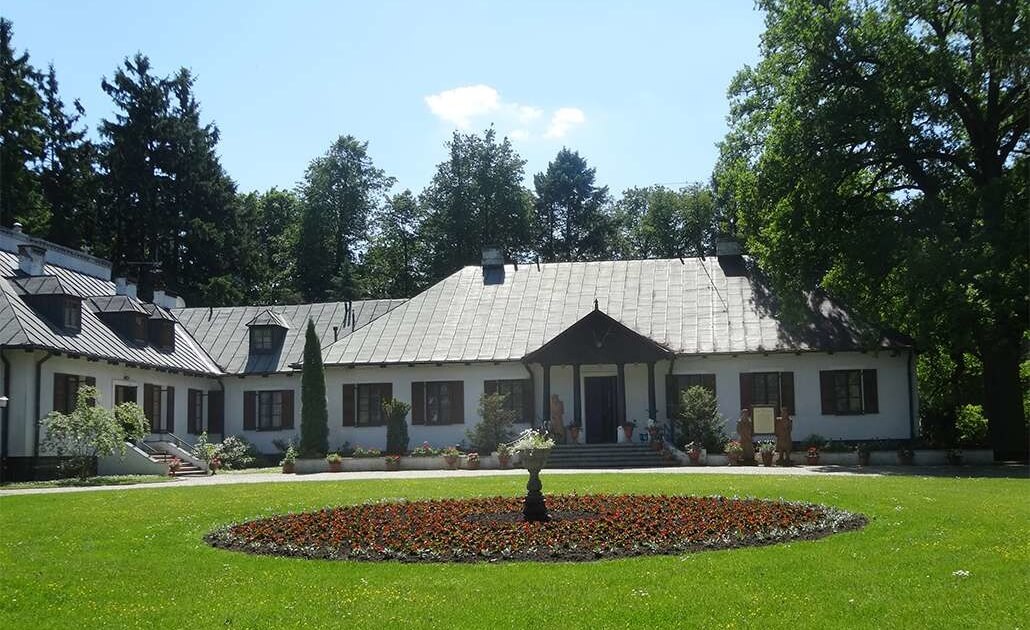
Siedlce, Poland
“We stayed in Reymontówka, a 19th-century manor house converted to a conference center. Our family-style meals were hearty fare, and I loved it all. I heaped my plate with whatever was offered. Fortunately for me, we had a day of instruction on how to teach and how to behave so that we would be good guests in this country. I hadn’t been a teacher for 25 years, and then I was teaching high school students.”
The casual atmosphere of the classrooms were a surprise, she admits, but she adapted quickly – even exerting a little authority on occasion. “One afternoon, to the delight of my students, I followed one of my renegade boys into the restroom and pulled him by the pants back from the window he was climbing out of – on the second floor. He was the same kid who taught me how to split a fresh maple tree seed and stick it to my nose. One day, one of the boys didn’t show up (in class) and I asked “Where’s Luke?” There were many puzzled looks, but it was clear one boy knew the answer. He ran up to the Polish/English dictionary.. and wrote on the blackboard, “Luke escape.” That was one way of putting it. On the last day, these little hellions came to class with bouquets of flowers and boxes of chocolates for me. It was all I could do to get them share the candy with me – so polite. And it was very good chocolate.”
Judith reports on her weekend tour to Kraków, Auschwitz and Birkenau, which left her haunted. “Travel was teaching me far more than I thought I’d learn. I was gaining perspective about my own country and myself as a representative – a representative of a very young country with a great deal of power dangerously linked with a limited experience of the toll of war.” But most important, she asserts, “I learned that a volunteer vacation was a good way to travel alone. People who go on these trips are usually inveterate travelers and are willing to work. That mix makes for interesting people. They tend to be adventurous, diplomatic, and not too in love with themselves.”

Zakopane, Poland
Encouraged by her first Global Volunteers’ program, and “feeling at home in Poland,” Judith returned two years later – but chose a different program in a different community at a different time of year. “Zakopane is at the foot of the Tatra Mountains, and we were there in summer, staying at one of the many chalets that are filled with vacationing skiers in the winter. We could be working with teen-aged kids in a summer language camp.” The informal setting and schedule suited her, but contrasted with the structure of the classrooms in Siedlce on her first program. “Every afternoon we went off with the students on some kind of excursion. We strolled and mingled and learned from each other.”
Summer language camps are a favorite of volunteers of all ages – and are especially suited for families with adolescent and teen children, who can teach their Polish peers, explains Global Volunteers Poland Country Manager Dorota Wierzbicka. “Students as Teachers (SAT)” is a program enabling youth to learn what it might be like to be a teacher by teaching conversational English to younger local students who need to improve their language skills. Teens and adults together help with pronunciation, idioms, and syntax through conversations, games, songs, skits, and formal lessons. Judith said Global Volunteers’ Conversational English Teaching Guide was filled with lesson plans and exercises – so everyone can “teach like a pro.”
The volunteers worked together as “team teachers” at the camp. “Marilyn and I worked with a small group of teen-aged girls, young women really, just outside our room on the second floor in an open area near the stairs. It was pleasant to have students old enough, and in such small groups, that a noisy setting wasn’t a problem.” The two weeks passed quickly, with each day a blur of small-group lessons and afternoon “field trips” to practice English in an active way. Because Zakopane shares a mountainous border with Slovakia, Judith traveled on the weekend into the southern country to tour castles and explore unique architecture. “Some of us sat at a sidewalk cafe and enjoyed our coffee, then shopped a small grocery store where I bought dry soup mix and cat treats in packets with strange writing – and came away with souvenir Slovakian crowns in change.”
“It was about hands and smiles, gestures and understanding. Perhaps our just being there was good.”
Global Volunteer Judith Schwab
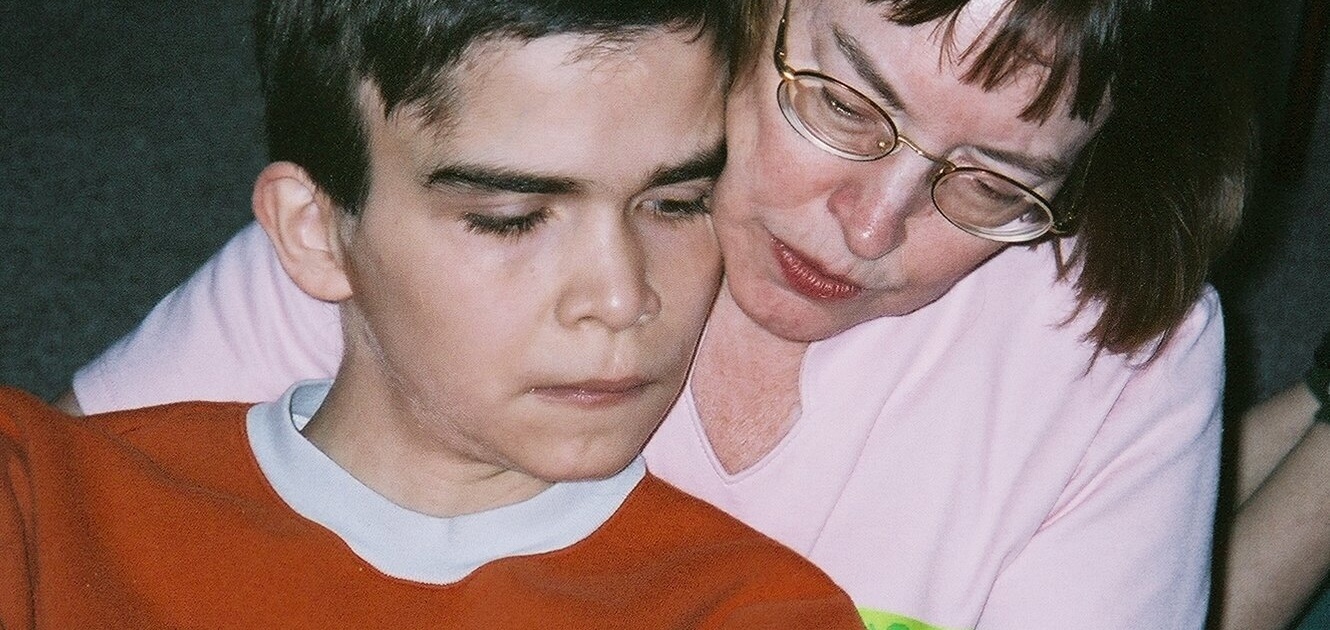
Globe-Hopping Suits Her
Two years after her second Poland service program, Judith set out on a Global Volunteers service journey across Europe and Latin America – beginning in Mexico in 2004, and on to Hungary later that year, teaching English to adult students in both countries. In 2005, she cared for disabled teens and adults in northern Greece, and followed that by caring for abandoned babies in Romania in 2006. Her South American bookend to her service blitz was in 2007 in Bahia, Brazil, where she played with hospitalized children in a toy library.
“I was on a roll now, traveling every year – and multiple times a year – on volunteer vacations,” she writes. “People stopped asking me if I was afraid and what my husband did while I was gone. Now they asked me where I had been recently and where I was going next.” She describes entertaining children, bald from chemotherapy, missing limbs, bandaged and medicated and wearing open-at-the-back hospital gowns.
“What we did was not depressing, perhaps because we couldn’t communicate verbally and discuss treatments, feeling or prognoses. With that advantage, illness did not color the kids’ identities for us. It was about hands and smiles, gestures and understanding. Perhaps our just being there was good. We were something different to look at. We spoke a different language, weren’t sick, and weren’t treating their conditions. We were a distraction.”
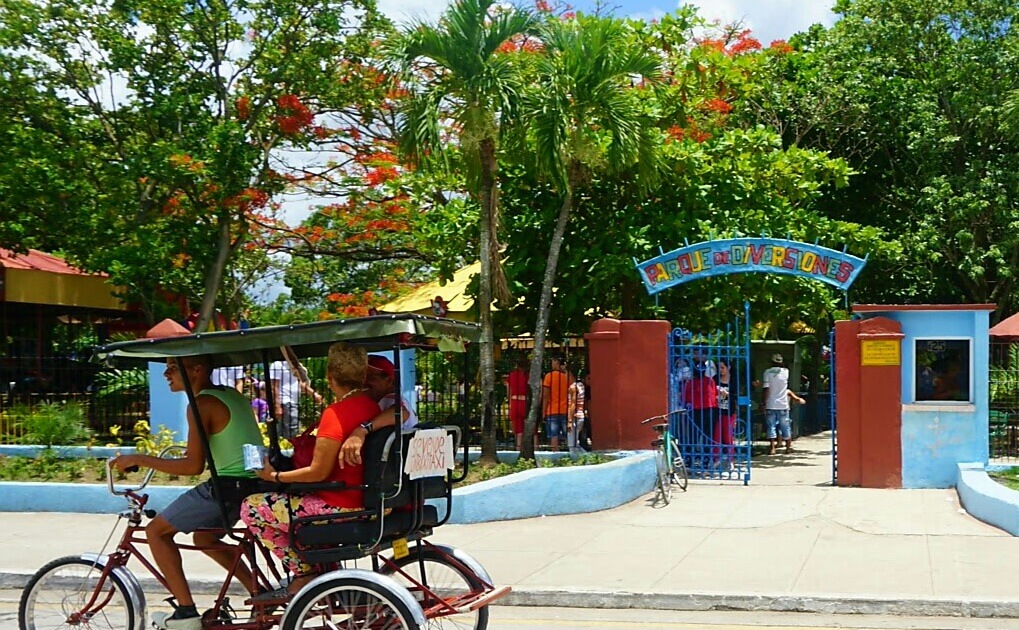
Havana, Cuba
Judith joined us again in 2012 at age 69 as we inaugurated our people-to-people program in Havana, Cuba. She had a lot of questions to answer: “What would I learn about relations between my country and Cuba? Why were so many people on my flight from Miami stuffing bicycle tires into the overhead bins? Would people still be wearing fatigues? Would there be free-range chickens on the bus?”
She had two weeks to find the answers, and was delighted when within the first 24 hours, she was assured that no chickens would accompany her on any local bus. She investigated every building that caught her attention, interrogated her Cuban group leader whenever possible, and integrated her new perspectives into a broadening context of understanding the island nation. For instance, she recounts a lecture at the University of Havana Center for Hemispheric and US Studies. “It had been a long time since I had sat in a classroom and heard the words ‘Monroe Doctrine.’ The Bay of Pigs and the Cuban Missile Crisis occurred when I was in college and totally absorbed in my own little world,” she recalls. “I vaguely remembered the boat people, but I didn’t recall the ‘Wet Foot, Dry Foot’ policy” (enabling Cubans to enter the US if they were able to place one foot on dry land). “As for restrictions on travel and remittances, I was not aware of which of our presidents did what in terms of what impacted Cubans’ lives. It was overwhelming.”
More stark historical references awaited her in visits to the Che Guevara museum, José Marti Square and the classic Chevy cars in Old Havana. During the second week, she discovered the answer to another pressing question – about the bike tires – in Ciego de Ávila, Global Volunteers’ other partner community. “The streets were clogged with bicycles, but there were few parts.” Mystery solved. Further, she noticed how private enterprise had taken a foothold. “When given permission to exercise a little free reign, the Cubans literally opened their doors. Either the front door or a window in the front room (of their homes) would be open to the street and some goods offered for sale. At one, you could buy pastries or a sandwich. At another, what looked like used women’s clothing was displayed. An official state store, where Cubans shopped with their ration books, looked poor in everything, save cigarettes.
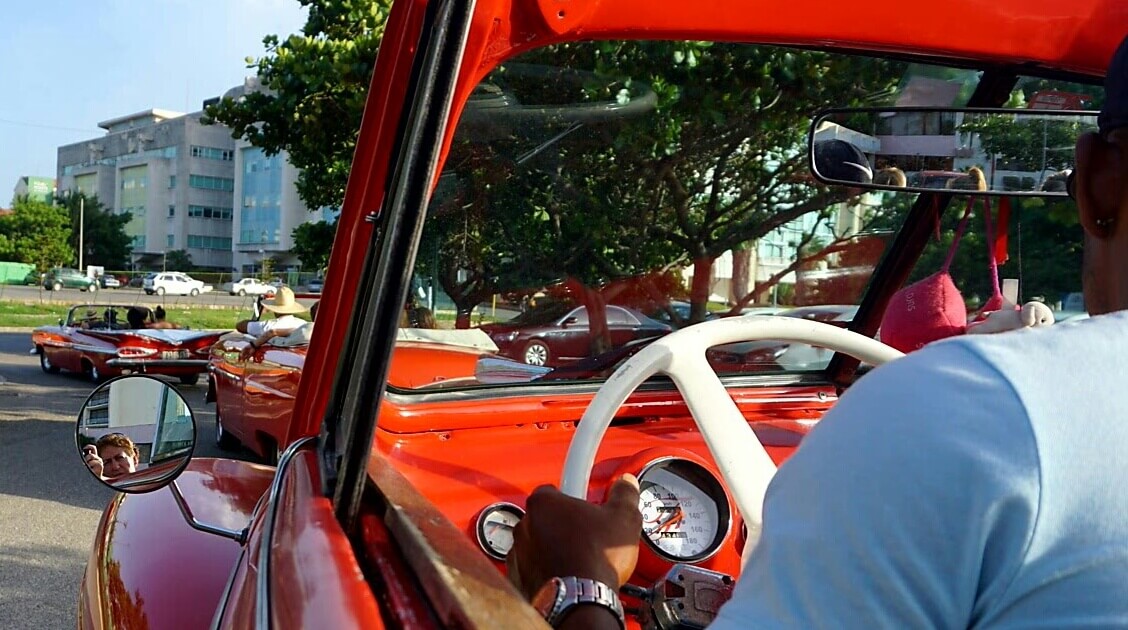
Turning the corner, the group entered “a different world” with new paving, flowers, fountains and modern shops stocked with new merchandise. “We visited a bookstore, an art gallery, and a craft gallery. These fine stores were all government-owned,” she said, intended for tourists and well beyond the financial range of the average Cuban. Such were the disparities in Cuba – a reality confirmed in a later visit with a US diplomat at the US Interests Section – that the abundance of Cuba is saved for visitors while Cubans live on about $20 a month, and despite free health and education, incomes rarely covered expenses. Today, the diplomat said, “people overall are more forthcoming (about inequities) than they used to be, and not as cautious about what they say,” which may eventually bring about lasting change. He added that “in his 15 years as a diplomat, he had never served in a place where the US was so important to the people and so low on US radar.”
At the end of the program, Judith said she “felt like I had visited some long-hidden neighbors” about whom she had only recently held a simple stereotyped view. She felt enlightened. “It also turned out to be more fascinating than I ever imagined.”
“Pico Iyer said it best: A person susceptible to wanderlust is not so much addicted to movement as committed to transformation.”
Global Volunteer Judith Scwab
From her first service program in Poland through her last in Cuba, Judith said she “came back far richer by what I experienced than the worth I had done for others. Meeting these people and working with them has changed my perspective forever. They and the people who supported them in their countries have taught me about dignity, patience, and the great combination of suffering and joy that makes up life. And each and every time one of my soul souvenirs comes out and greets me, I am grateful that I packed my bag and went out there to get it. Those memories are invaluable payment for unpaid work.”
You can find Judith Love Schwab’s book Lending a Hand, Seeing the World here:
Check out Judith’s art and writing here: www.judyschwab.com.

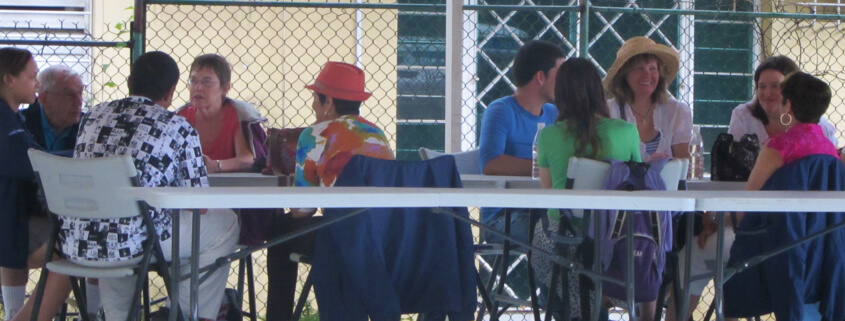


Leave a Reply
Want to join the discussion?Feel free to contribute!